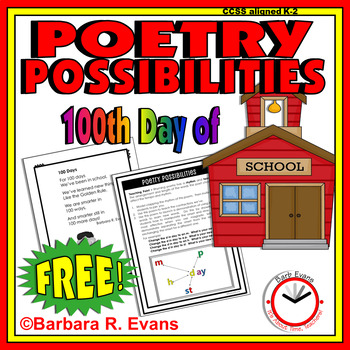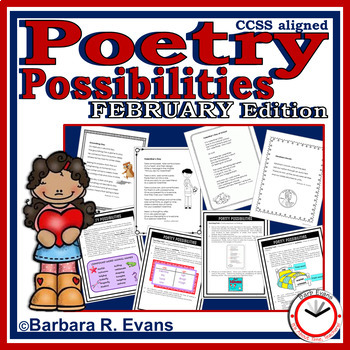Poems placed at the center must be familiar to the
children. You are just inviting problems
if you post an unfamiliar poem. Through
shared reading, your students should have a clear understanding of the poem’s meaning
or essence. During those reads, ensure
that your students understand the vocabulary and have sufficient background
knowledge. Ideally, the poem will be one
that everyone can read independently. If
that is not possible, and I don’t believe it always IS possible, have a system
whereby those who can’t read it can readily find a helper.
Poems placed at the center
are in several forms: individual copies for
the students’ anthologies, an enlarged or poster version, and sentence strips
with the poem copied on them. A pocket
chart is available for the latter.
Whisper phones are there, as well.
Have supplies available at the center so that students need not travel back to their desks to fetch them. You will likely need scissors, pencils, erasers, crayons, colored pencils, and/or markers. I also place a 3 hole punch at my center for students to use since we collect our poetry in 3 ring binders.
Have supplies available at the center so that students need not travel back to their desks to fetch them. You will likely need scissors, pencils, erasers, crayons, colored pencils, and/or markers. I also place a 3 hole punch at my center for students to use since we collect our poetry in 3 ring binders.
There are myriad activities
for students to pursue. As you can well
imagine, the activities available at any one time, are limited and variable. Following is an eclectic list of those
activities:
Read the poem with a buddy (EEKK)
Find rhyming words & highlight them
Find rhyming words & highlight them
Illustrate the poem
Find patterns in the poem
Identify word wall words in the poem
& highlight or make a list
Highlight words that are hard or
tricky
Complete a poetry Cloze exercise (fill
in the missing words)
Make a bookmark based on the poem
Read with expression/read the
punctuation
Build poems from sentence strips
Create
poetry with magnetic poem kits
Memorize a poem
Perform
a poem
Another set of activities at
the poetry center is based on language arts skills. The poetry center can reinforce skills
currently under study or review some previously taught. Some skill lessons to consider include:
Rhyming words
Onsets and rimes
Onsets and rimes
Spelling list words
Vowel
sounds
Digraphs
Blends
and clusters
Base
words
Prefixes
and suffixes
Punctuation
Rules
of grammar
Parts
of speech
Homonyms,
synonyms, antonyms, homophones
For higher performing
students in the early grades, as well as students in middle and upper grades,
additional activities may focus on the craft of poetry. Such activities include:
Make text innovations
Compose a poem
Compose a poem
Identify elements of a poem
Explore figurative language
Compare 2 poems using a Venn diagram
or a T-chart
Write a response to the poem
Conduct an author study on the poet
You may also be interested in:
All of these products are available in my TpT Store or my TN Shop.


























